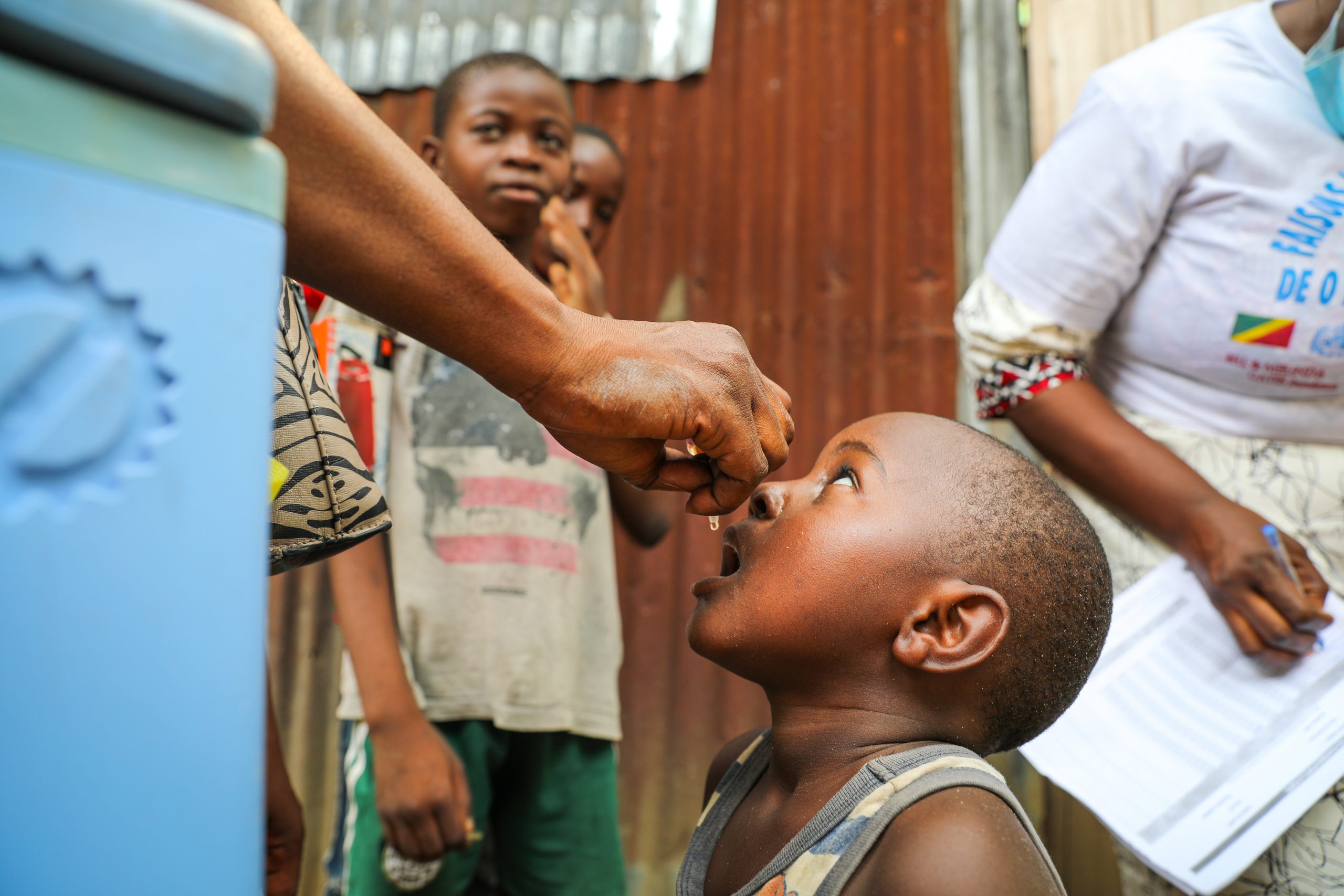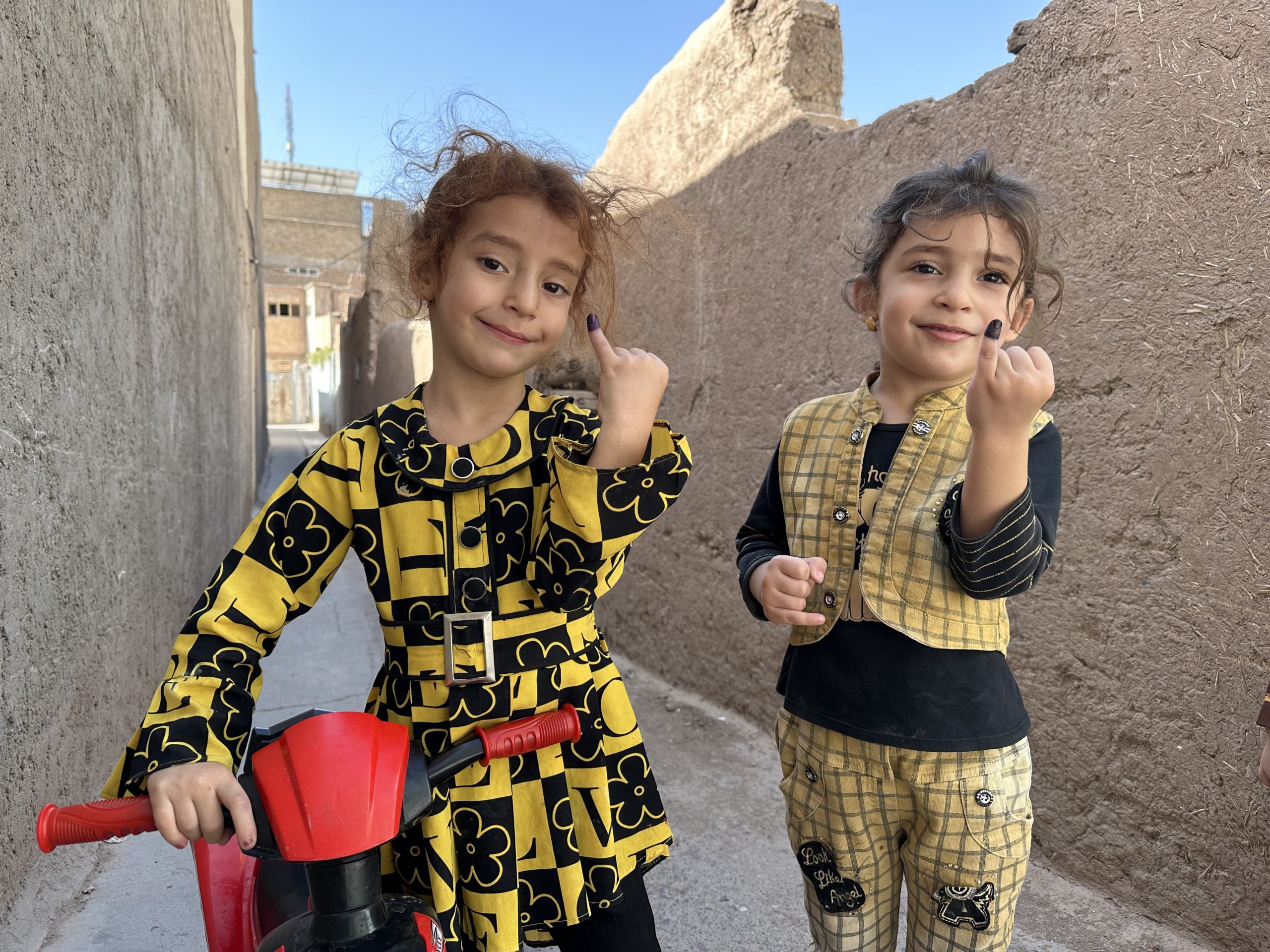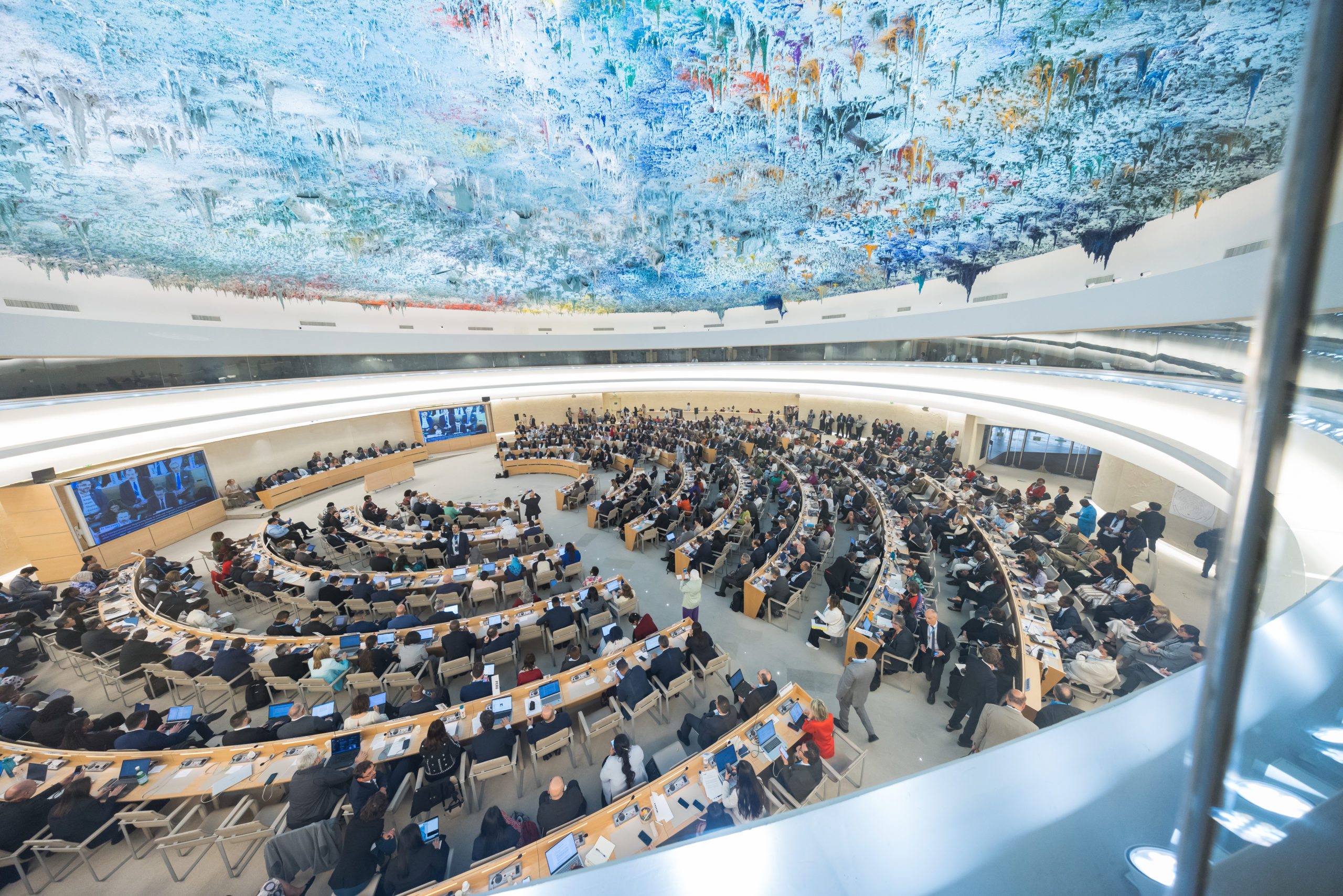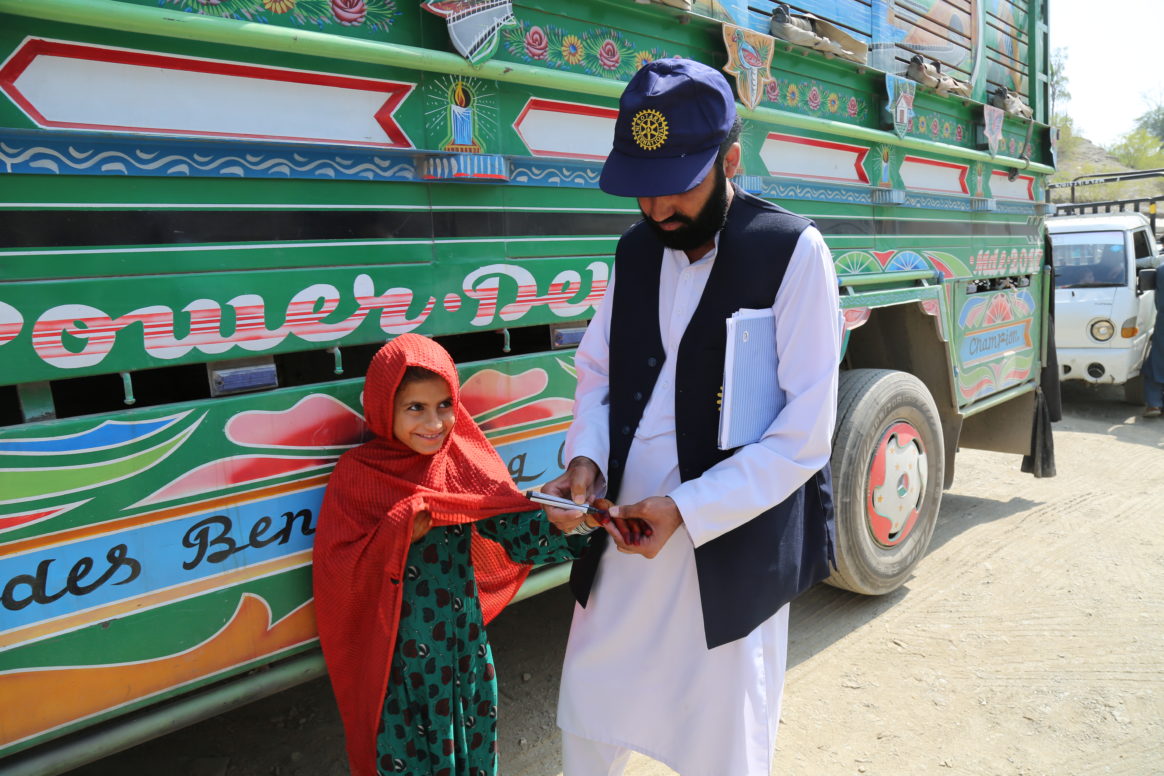
Malik is one of the hardworking vaccinators making sure that even children on the move are protected against polio.
The poliovirus knows no borders, making children on both sides of the border between Afghanistan and Pakistan vulnerable to contracting the debilitating disease. This is why, placed strategically along the border, 19 WHO-supported vaccination posts reach children on the move as they cross between countries, ensuring that all children under the age of 10 receive two drops of the oral polio vaccine to protect them from polio.
One of these teams is led by Malik, who has worked for the polio eradication programme for 14 years.
“I wanted to join the eradication programme when I heard that polio is a contagious disease that affects children. I wanted to serve children and our community. I learned about polio on the TV and radio and the health workers who came to our home to share information about the virus.”
Protecting children on the move
Malik started working as a vaccinator and has now worked as a team supervisor for the past 10 years.
“I am proud when we can reach every child and when I see my team vaccinating children, making sure that no child is missed. This makes me very happy,” he says.
Cross-border vaccination teams are crucial in the fight against polio. The Torkham border between Afghanistan and Pakistan, in eastern Nangarhar province, is one of the busiest border crossings in Afghanistan. Currently 38 WHO-supported vaccinators work in three shifts, operating 24 hours a day, 7 days a week.
“Today I started my work at 5.30 am. When we arrive at work in the morning, I gather the team together and we go through any issues that arose in the previous shift. We revise the schedule of the day and I assign teams to their specific locations. We have three locations at this border where we vaccinate all children coming to Afghanistan and those who are leaving.”
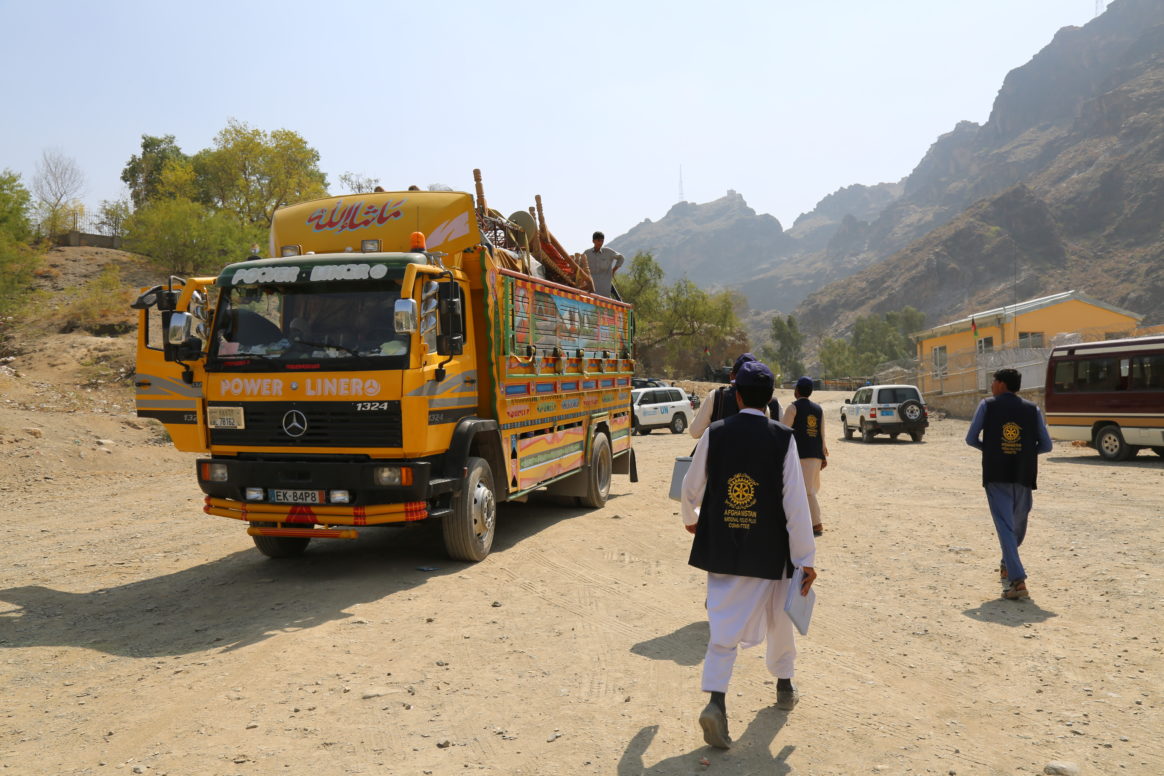
Checking for signs of polio
Since January 2017, WHO and partners have vaccinated over 44 000 Afghan children under the age of 10 crossing the border to Afghanistan from Iran and Pakistan. Over 25 000 of these have been vaccinated at the Torkham border’s so called “zero point” – the first point where Afghan refugees and returnees returning from Pakistan arrive.
“We focus a lot of finding cases of acute flaccid paralysis, sudden onset of floppiness in the limbs that is a sign of polio. We check children in all the vehicles that arrive at the border and work hard not to miss any potential polio cases,” Malik says. “When the trucks park here, we talk to the parents and ask about any possible cases of paralysis in the family. We also educate them about the importance of vaccines and tell them about the routine immunization services that are available free-of-charge in Afghanistan’s health facilities.”
Building trust
Most caregivers crossing the border to Afghanistan accept the polio vaccine but challenges remain.
“Sometimes we see parents who refuse to vaccinate children. We try our best to convince them to vaccinate by telling them more about the benefits of the polio vaccine and how polio cannot be cured. Those who refuse to vaccinate their children often don’t understand what the vaccine is or how it is essential for protecting their children,” Malik says.
Despite difficulties and his demanding work in a challenging environment where the security situation can shift quickly, Malik and his team are determined to continue the fight against polio.
“Afghanistan is still polio-endemic and the virus is deadly,” he says as he leads his team to approach another truck that crossed the border into Afghanistan. “I want to deliver these crucial services, serve my community and protect vulnerable children.

